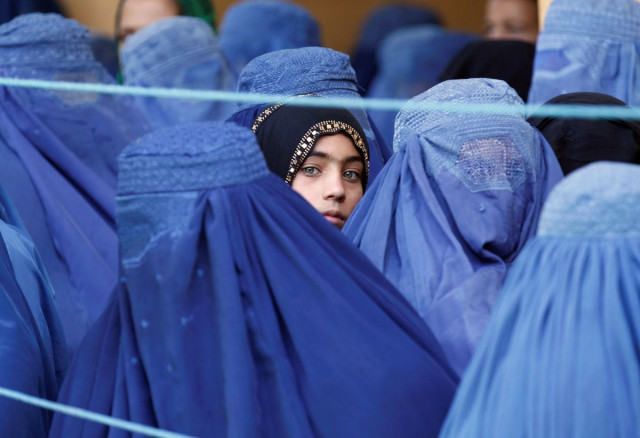Deputy UN chief has talks in Afghanistan on women's rights
Mohammed also conveyed solidarity and discussed ways to promote and protect Afghan women's and girls rights

The United Nations deputy secretary-general discussed women's rights with Afghanistan's acting foreign minister on Wednesday after the Taliban authorities banned most female aid workers and stopped women and girls from attending high school and university.
Amina Mohammed has also met with UN staff, aid groups and Afghan women "to take stock of the situation, convey solidarity, and discuss ways to promote and protect women's and girls rights," deputy UN spokesman Farhan Haq said in New York.
In those talks, Mohammed "stressed the need to uphold human rights, especially for women and girls" and was "encouraged by exemptions" to the ban on female aid workers, Haq said. The exemptions have allowed some work to restart in areas such as healthcare.
Mohammed also "underscored the importance of continuing to be driven by principles," Haq told reporters.
On her way to Kabul, Mohammed met officials in Turkey, Qatar and Pakistan to discuss the situation in Afghanistan, which Haq summed up: "Clear consensus was evident on the issue of women and girls' rights to work and have access to education."
While Haq did not say which Taliban administration officials Mohammed had seen so far, an Afghan foreign affairs ministry spokesperson said she met acting foreign minister Amir Khan Muttaqi.
Also read: Myanmar military bombs village, killing seven, sources say
Muttaqi said a lack of formal recognition, travel restrictions on Taliban leaders, and banking sanctions were causing problems that should be addressed by other countries, according to a foreign ministry statement. He added that women were able to work in health and education.
The Taliban administration on 24 Dec ordered local and foreign aid organisations to stop female staff from working until further notice, days after it banned women from universities. The Taliban said the orders, condemned globally, was justified because some women had not adhered to its interpretation of Islamic dress code.
Many aid groups, some of whom carry out humanitarian work under contracts with the United Nations, stopped operations following the ban.



















COMMENTS
Comments are moderated and generally will be posted if they are on-topic and not abusive.
For more information, please see our Comments FAQ